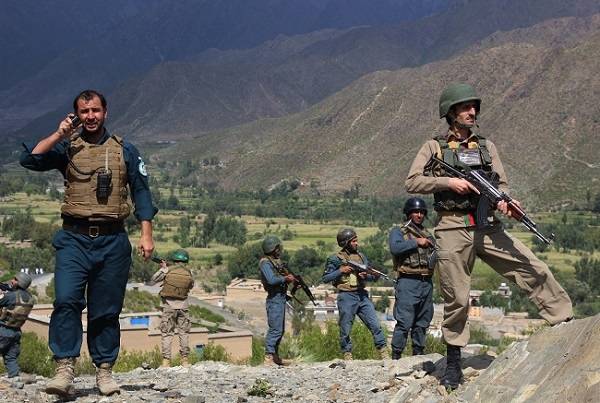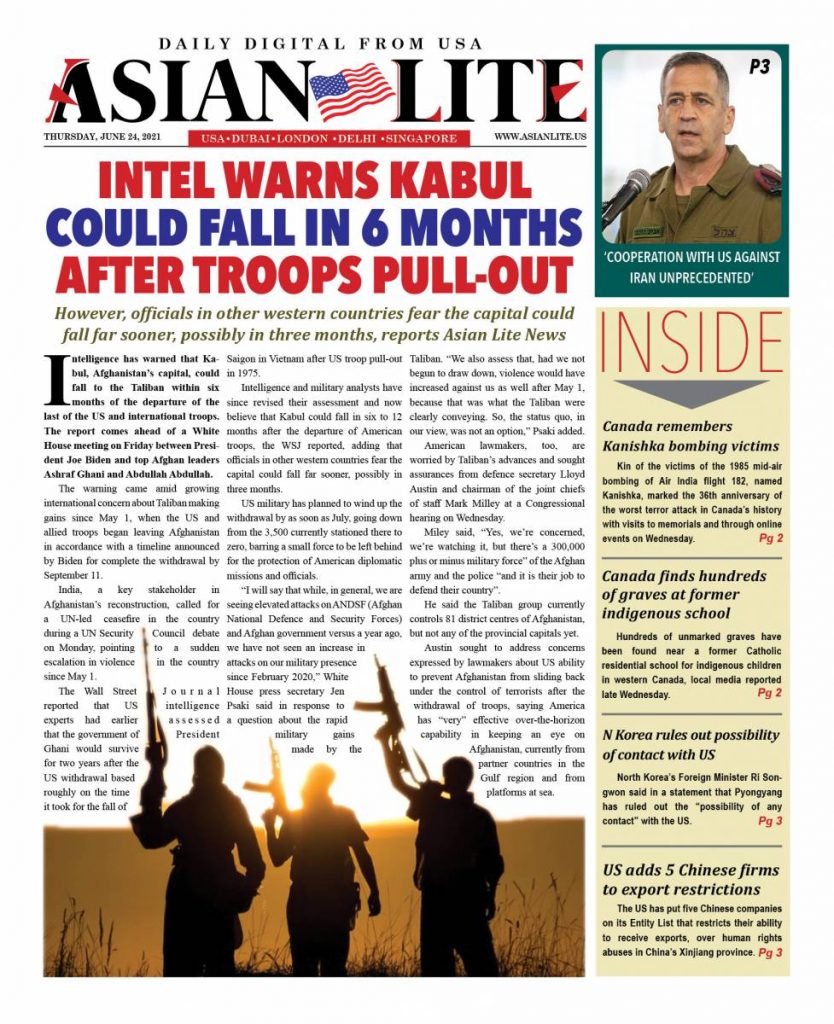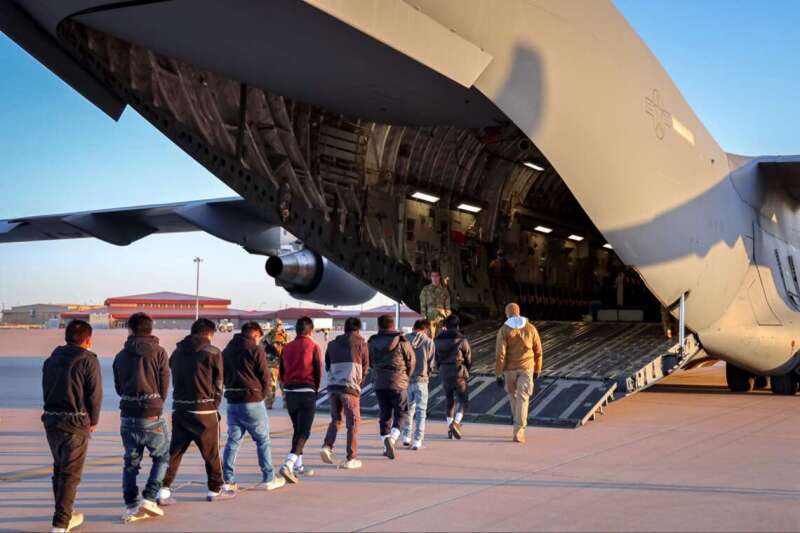However, officials in other western countries fear the capital could fall far sooner, possibly in three months, reports Asian Lite News
Intelligence has warned that Kabul, Afghanistan’s capital, could fall to the Taliban within six months of the departure of the last of the US and international troops. The report comes ahead of a White House meeting on Friday between President Joe Biden and top Afghan leaders Ashraf Ghani and Abdullah Abdullah.
The warning came amid growing international concern about Taliban making gains since May 1, when the US and allied troops began leaving Afghanistan in accordance with a timeline announced by Biden for complete the withdrawal by September 11.
India, a key stakeholder in Afghanistan’s reconstruction, called for a UN-led ceasefire in the country during a UN Security Council debate on Monday, pointing to a sudden escalation in violence in the country since May 1.
The Wall Street Journal reported that US intelligence experts had earlier assessed that the government of President Ghani would survive for two years after the US withdrawal based roughly on the time it took for the fall of Saigon in Vietnam after US troop pull-out in 1975.

Intelligence and military analysts have since revised their assessment and now believe that Kabul could fall in six to 12 months after the departure of American troops, the WSJ reported, adding that officials in other western countries fear the capital could fall far sooner, possibly in three months.
US military has planned to wind up the withdrawal by as soon as July, going down from the 3,500 currently stationed there to zero, barring a small force to be left behind for the protection of American diplomatic missions and officials.
“I will say that while, in general, we are seeing elevated attacks on ANDSF (Afghan National Defence and Security Forces) and Afghan government versus a year ago, we have not seen an increase in attacks on our military presence since February 2020,” White House press secretary Jen Psaki said in response to a question about the rapid military gains made by the Taliban.

“We also assess that, had we not begun to draw down, violence would have increased against us as well after May 1, because that was what the Taliban were clearly conveying. So, the status quo, in our view, was not an option,” Psaki added.
American lawmakers, too, are worried by Taliban’s advances and sought assurances from defence secretary Lloyd Austin and chairman of the joint chiefs of staff Mark Milley at a Congressional hearing on Wednesday.
Miley said, “Yes, we’re concerned, we’re watching it, but there’s a 300,000 plus or minus military force” of the Afghan army and the police “and it is their job to defend their country”.
He said the Taliban group currently controls 81 district centres of Afghanistan, but not any of the provincial capitals yet.
Austin sought to address concerns expressed by lawmakers about US ability to prevent Afghanistan from sliding back under the control of terrorists after the withdrawal of troops, saying America has “very” effective over-the-horizon capability in keeping an eye on Afghanistan, currently from partner countries in the Gulf region and from platforms at sea.
“What we’d like to do going forward is shorten the legs that were required to utilise by getting an agreement with one of the neighbouring countries to base some of our ISR (Intelligence, Surveillance, Reconnaissance) in one of those countries,” said Austin.
Austin did not name these countries, but Pakistan appears to be a leading candidate, as has been clear from repeated public protestations from Prime Minister Imran Khan, who has said his country won’t agree to give the US bases on its soil.
ALSO READ: Afghan leaders warned against blaming Pakistan during US visit














